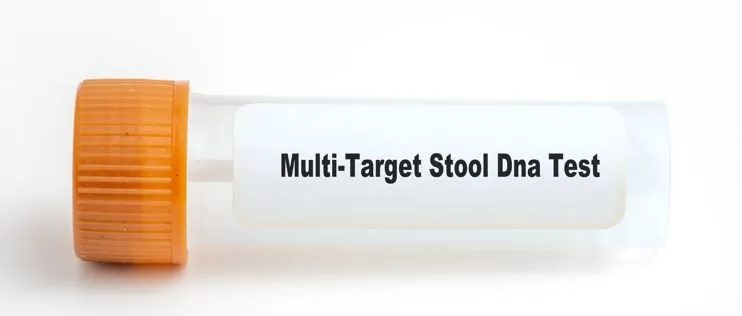
Revolutionary Stool DNA Test Surpasses Traditional Methods in Colon Cancer Screening
2025-05-05
Author: Siti
Breakthrough in Colorectal Cancer Screening
In a groundbreaking revelation presented at Digestive Disease Week 2025, new studies highlight that multitarget stool DNA (mt-sDNA) testing significantly enhances adherence to follow-up colonoscopies compared to traditional screening methods like the fecal immunochemical test (FIT) and fecal occult blood test (FOBT). This is particularly crucial for populations at higher risk of colorectal cancer (CRC).
Youth and Diversity in Focus
The first study spotlighted adults aged 45-49, a group recently added to colorectal cancer screening guidelines by major health organizations. Researchers scrutinized data from over 13,000 patients with positive screening results between 2017 and 2022. They found that a remarkable 85% of participants using mt-sDNA underwent follow-up colonoscopies, compared to a mere 35.2% among those who opted for FIT/FOBT.
Impressive Rates Across Demographics
Notably, the mt-sDNA test demonstrated adherence rates of 67.6% to 86.6% across various demographics, far exceeding FIT/FOBT rates of 30.5% to 45.7%. Male participants and Asian/Pacific Islanders showcased the highest adherence levels, with rates surpassing 82% in both cases.
Speedier Follow-Up
Additionally, those who underwent mt-sDNA testing completed their colonoscopies significantly faster, averaging 74.5 days, compared to 90.8 days for FIT/FOBT recipients. These findings strongly suggest that mt-sDNA could be a game-changer in enhancing screening adherence, especially among younger individuals.
Broader Analysis and Racial Disparities
The second study broadened its scope to include over 356,000 individuals aged 45 and older, uncovering that adherence rates for mt-sDNA reached an impressive 77.2% compared to just 45.1% for FIT/FOBT. The benefits of mt-sDNA testing held firm across all racial and ethnic groups, with significant advantages for Asian/Pacific Islanders and other minority populations.
This statistic is particularly significant because colorectal cancer often strikes these groups at more advanced stages, highlighting the urgent need for effective screening methods.
A Clear Call for Change
Both studies conclude that mt-sDNA testing promotes better follow-up behaviors than traditional stool-based tests, making it an effective screening strategy across all ages and diverse populations. Timely follow-ups after positive screening tests remain critical to reducing complications and lowering mortality rates associated with colorectal cancer.
As these findings gain traction, there’s hope that mt-sDNA testing will become the standard, ultimately saving lives through improved screening and follow-up care.


 Brasil (PT)
Brasil (PT)
 Canada (EN)
Canada (EN)
 Chile (ES)
Chile (ES)
 Česko (CS)
Česko (CS)
 대한민국 (KO)
대한민국 (KO)
 España (ES)
España (ES)
 France (FR)
France (FR)
 Hong Kong (EN)
Hong Kong (EN)
 Italia (IT)
Italia (IT)
 日本 (JA)
日本 (JA)
 Magyarország (HU)
Magyarország (HU)
 Norge (NO)
Norge (NO)
 Polska (PL)
Polska (PL)
 Schweiz (DE)
Schweiz (DE)
 Singapore (EN)
Singapore (EN)
 Sverige (SV)
Sverige (SV)
 Suomi (FI)
Suomi (FI)
 Türkiye (TR)
Türkiye (TR)
 الإمارات العربية المتحدة (AR)
الإمارات العربية المتحدة (AR)